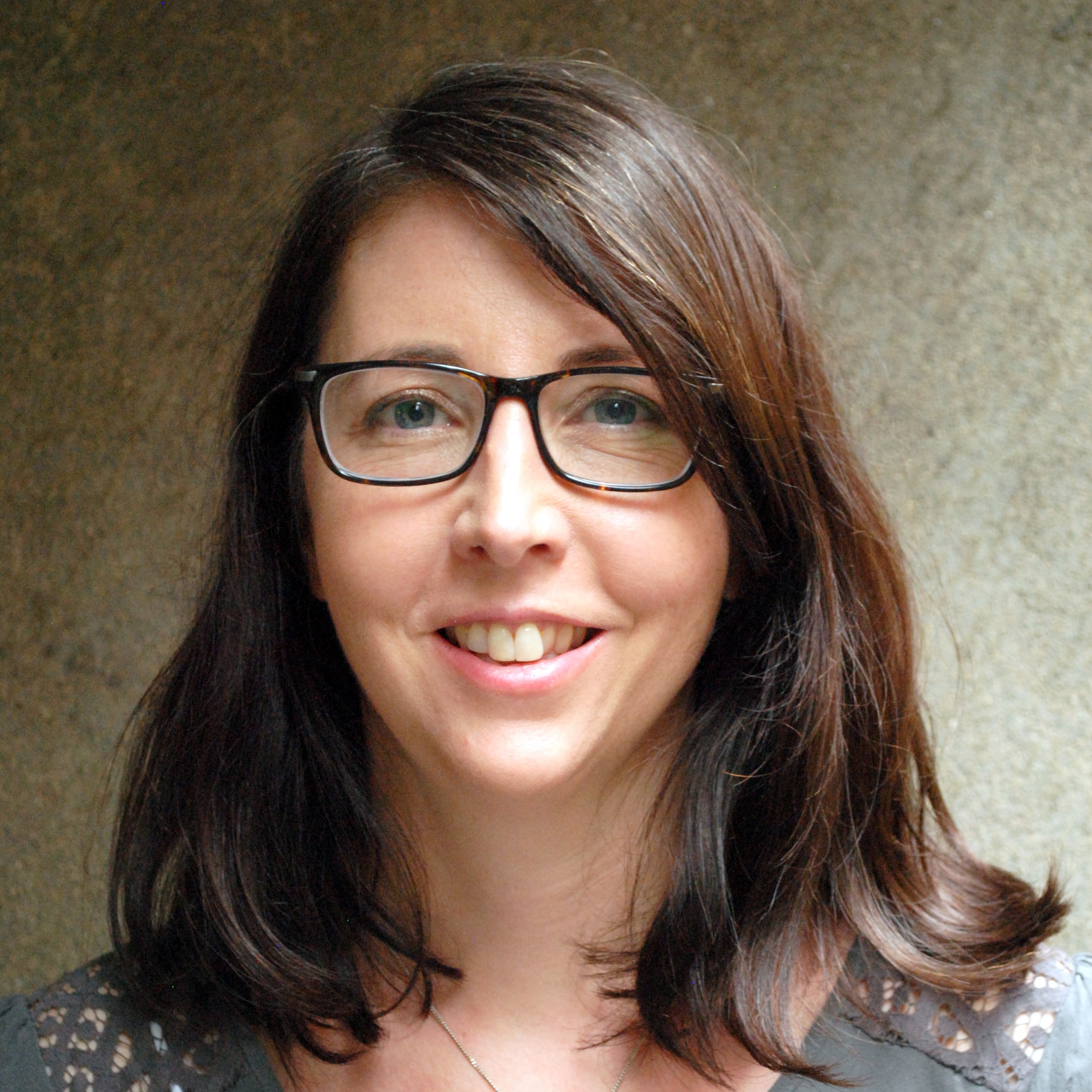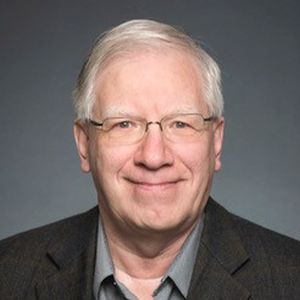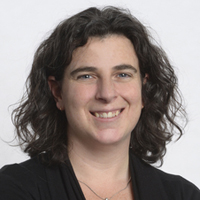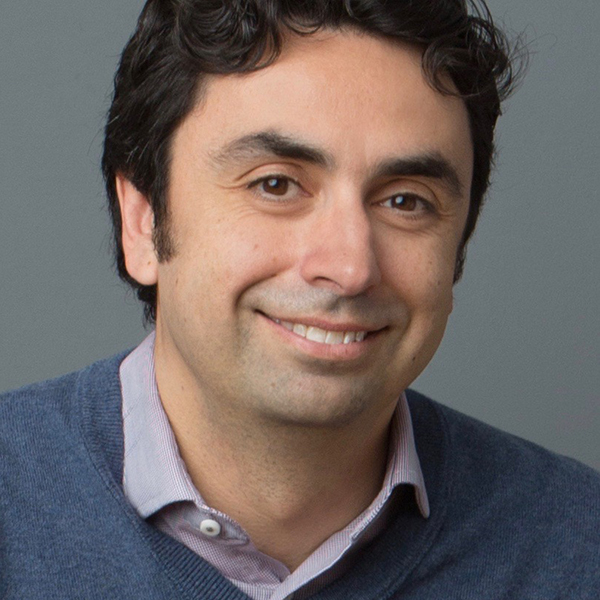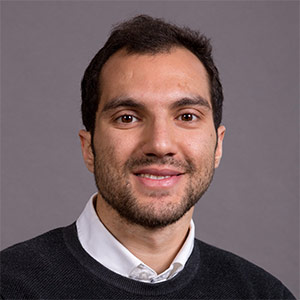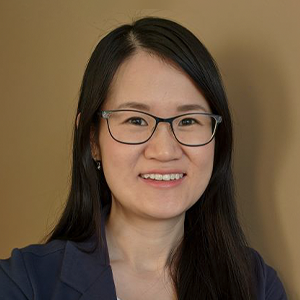The Secretariat’s mandate
The Secretariat provides scientific and administrative support to the COVID-19 Immunity Task Force (CITF) and the Vaccine Surveillance Reference Group (VSRG). Its work informs deliberations and its employees implement decisions of the CITF Leadership Group, the VSRG and the Executive Committee.
The Secretariat is housed at McGill University’s School of Population and Global Health but welcomes staff from across Canada, working remotely. The Secretariat is supported by funds from Health Canada.
Learn more

Executive Director

Associate Scientific Directors

Scientific Team

Administration
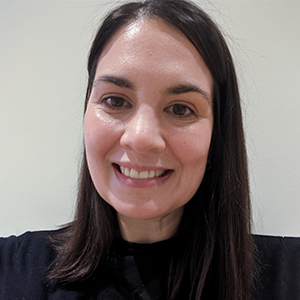
Anna Birnie-Lefcovitch
Administration and Governance – Management
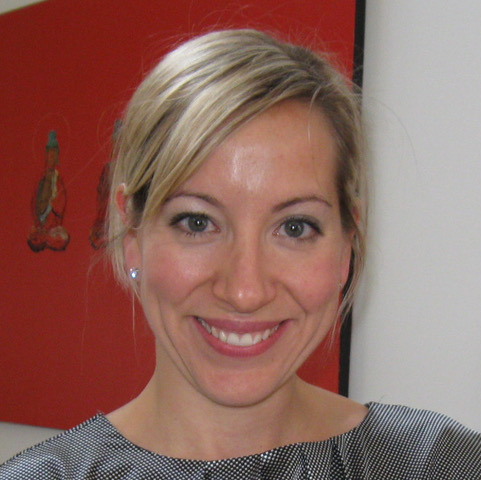
Caroline Phaneuf
Communications – Management
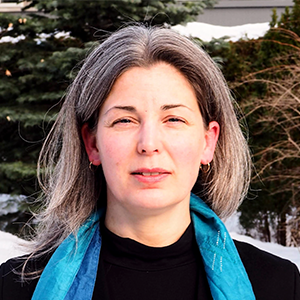
Tanya Murphy
Data Manager

Candace Miller
Senior Research Advisor

Varun Anipindi
Senior Research Advisor

David Nguyen
Senior Awards Officer
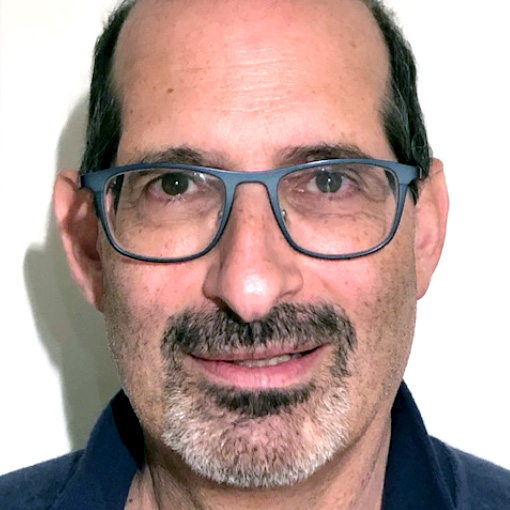
Tod Hoffman
Communications Advisor

Carolina Mancini
Project Manager

Research Associates
Joanna Merckx
Joanna Merckx, MD, MSc, is an epidemiologist, pediatrician and infectious disease subspecialist and is an affiliate member and course lecturer at McGill University’s Department of Epidemiology, Biostatistics and Occupational Health.
Joanna holds a Master in Epidemiology from McGill University as well as a Doctorate in Medicine with a specialty in pediatrics from the University of Louvain, Belgium. Joanna completed her fellowship training in the subspecialty of pediatric infectious diseases at the McGill University Health Centre and holds a certificate in Tropical Medicine from the Institute of Tropical Medicine in Antwerp, Belgium. She is a PhD in Epidemiology candidate at the University of Amsterdam.
Joanna’s expertise and research focus lay in diagnostics and diagnostic epidemiology in the field of infectious diseases and antimicrobial resistance. She has research experience in clinical epidemiology, vaccinology and meta-analysis work and is involved in pediatric and perinatal epidemiology, including multiple studies investigating SARS-CoV-2 infection, transmission, and dynamics in children in Belgium and in Canada. She was member of the Belgian Pediatric COVID-19 Task Force.
Ahmed Moustafa Ahmed
Ahmed Moustafa Ahmed, M.Eng, earned a Master of Industrial Engineering focusing on the application of statistical methods and optimization techniques to enhance quality of patient care. He has working experience as a Statistician in healthcare, as well as expertise in building data pipelines and machine learning models in the field of Natural Language Processing.
Hanna Swail
Hanna Swail, Bsc, MM, earned a Master of Analytics Management and Bachelor of Microbiology and Immunology from McGill University. She comes to the CITF with experience working in the Artificial Intelligence industry as a Data Analyst, as well as in the pharmaceutical industry as a Quality Assurance Auditor. She has also worked in various microbiological laboratories and has a strong passion for data analysis in health sciences.
Timothy Evans
Timothy Evans, MD, PhD, joined McGill University in September 2019, as the Inaugural Director and Associate Dean of the School of Population and Global Health (SPGH) in the Faculty of Medicine and Associate Vice-Principal (Global Policy and Innovation). He joined McGill after a 6-year tenure as the Senior Director of the Health, Nutrition and Population Global Practice at the World Bank Group. From 2010 to 2013, Dr. Evans was Dean of the James P. Grant School of Public Health at BRAC University in Dhaka, Bangladesh, and Senior Advisor to the BRAC Health Program. From 2003 to 2010, he was Assistant Director General at the World Health Organization (WHO). Prior to this, he served as Director of the Health Equity Theme at the Rockefeller Foundation.
Earlier in his career, he was an attending physician of internal medicine at Brigham and Women’s Hospital in Boston and was Assistant Professor in International Health Economics at the Harvard School of Public Health. Dr. Evans has been at the forefront of advancing global health equity and strengthening health systems delivery for more than 20 years. At WHO, he led the Commission on Social Determinants of Health and oversaw the production of the annual World Health Report. He has been a co-founder of many partnerships including the Global Alliance on Vaccines and Immunization (GAVI) as well as efforts to increase access to HIV treatment for mothers and innovative approaches to training community-based midwives in Bangladesh. Dr. Evans received his Medical Degree from McMaster University in Canada and was a Research and Internal Medicine Resident at Brigham and Women’s Hospital. He earned a DPhil in Agricultural Economics from University of Oxford, where he was a Rhodes Scholar.
Bruce Mazer
Bruce Mazer, MD, is a graduate of McGill’s Faculty of Medicine and Health Sciences and has been a faculty member in the Department of Pediatrics since 1991. He completed his pediatric training at the Montreal Children’s Hospital (MCH), followed by a clinical and research fellowship in allergy and clinical immunology at the University of Colorado.
From 2000 to 2015, he served as Division Head of Allergy and Immunology at the MCH. In 2015, he was appointed Head of Child Health Research at the Research Institute of the McGill University Health Centre (RI-MUHC). In October 2016, he became Interim Executive Director and Chief Scientific Officer of the RI-MUHC, a role he held until July 2020.
Dr. Mazer’s research focuses on the role of B-cells in regulating inflammation in allergic diseases and antibody responses in immune-deficient patients. He has published over 120 papers, and his work has been funded by several major organizations, including the Fonds de Recherche du Québec and the Canadian Institutes of Health Research (CIHR).
Olivia Oxlade
Olivia Oxlade, PhD, is an epidemiologist who completed her Master of Science degree at the London School of Hygiene and Tropical Medicine and her PhD in epidemiology at McGill University. She completed her postdoctoral fellowship at the Harvard School of Public Health.
Dr. Oxlade’s research focuses on global health and tuberculosis (TB). From 2015 until now, Dr. Oxlade has worked at the RI-MUHC, where she served as an Associate Director of the McGill International TB Centre and as Managing Director of the World Health Organization (WHO) Collaborating Centre for TB Research. Over the past decade she has managed many projects funded by different organizations including USAID, WHO, the Bill & Melinda Gates Foundation, CIHR, and the Public Health Agency of Canada. Most recently, she provided oversight to a large CIHR-funded research program focused on TB prevention at the RI-MUHC and managed a multi-centre international trial with sites in Africa, Asia, Brazil, and Canada.
David Buckeridge
David Buckeridge, MD, PhD, FRCPC, is a Professor in the School of Population and Global Health at McGill University in Montreal where he directs the Surveillance Lab, an interdisciplinary group that develops, implements, and evaluates novel computational methods for population health surveillance. He is also the Chief Digital Health Officer at the McGill University Health Center, a medical informatics consultant to the Quebec Institute for Excellence in Health and Social Services, and an Associate Member with Mila. His research and practice focus on the informatics of health surveillance and disease control and he holds a Canada Research Chair (Tier 1) in Health Informatics and Data Science.
In the context of the COVID-19 pandemic, Dr. Buckeridge provides regular projections of health system demand for the Quebec government, is the Scientific lead for Data Management and Analytics for the COVID-19 Immunity Task Force and sits on the expert panel advising the Canadian government about health systems. He is also a technical advisor to the World Health Organization Epidemic Intelligence from Open Sources (EIOS) program on the application of artificial intelligence to global infectious disease surveillance. Dr. Buckeridge has a MD from Queen’s University, a MSc in Epidemiology from the University of Toronto, and a PhD in Biomedical informatics from Stanford University.
Nicholas Birkett
Nicholas Birkett, MD, is an Associate Professor in Epidemiology at the University of Ottawa. He is also Associate Director (epidemiology) of the McLaughlin Centre for Population Health Risk Assessment in Ottawa.
Dr. Birkett obtained his MD from McMaster University in 1974. Following two years of internal medicine residency, he switched to research, obtaining an MSc in Clinical Epidemiology and Biostatistics from McMaster University in 1978. Since then, he has worked in academic epidemiology at the University of Western Ontario, McMaster University and, since 1988, at the University of Ottawa.
He has a strong interest in research methods, quantitative research and systems theory. He has conducted research in multiple areas including Health Service Research in hypertension, application of psychological theory to disease prevention, molecular epidemiology of cancer prevention, and pharmacoepidemiology.
As an educator, he has taught courses in epidemiology, biostatistics, public health, immunization, and communicable disease control. He is the director of the graduate diploma program in Population Health Risk Assessment and Management at the University of Ottawa.
Since the start of the COVID pandemic, he has participated in several groups, assisting in the preparation of projects to assess population level immunity and vaccine safety.
Matthew Pellan Cheng
Matthew Pellan Cheng, MD, obtained his medical degree from McGill University in 2011. He completed his residency in internal medicine at the University of British Columbia, followed by a combined fellowship in infectious diseases and medical microbiology at McGill University. He completed a postdoctoral fellowship at the Harvard Medical School-affiliated Brigham and Women’s Hospital before establishing his clinical research program at the McGill University Health Centre.
Dr. Cheng’s research interests include treating patients with potentially lethal infectious diseases, such as those with severe manifestations of sepsis, bloodstream infections, and opportunistic infections in immunocompromised hosts. His research program focuses on improving outcomes in these conditions by developing novel treatment and diagnostic strategies. His research program is funded by research operating grants from the US National Institutes of Health, the Canadian Institutes for Health Research, and the Australian National Health and Medical Research Council. Dr. Cheng has been the recipient of numerous awards including fellowship grants from the Royal College of Physicians and Surgeons of Canada, the Association of Medical Microbiologists and Infectious Diseases Specialists of Canada, and the Fonds de Recherche Santé Quebec. He was also the recipient of the prestigious Terry Fox Humanitarian Award.
Jesse Papenburg
Jesse Papenburg, MD, is an Assistant Professor of Pediatrics and an Associate Member of the Department of Epidemiology, Biostatistics and Occupational Health at McGill University. He practices pediatric Infectious Diseases and Medical Microbiology at the Montreal Children’s Hospital of the McGill University Health Centre.
Dr. Papenburg obtained his medical degree from McGill University and completed residency and subspecialty training at the Montreal Children’s Hospital. He then completed a research fellowship on the molecular virology of RNA respiratory viruses at Laval University and a MSc in epidemiology at McGill. As a clinician scientist, Dr. Papenburg’s research is on the epidemiology of viral respiratory infections, with a focus on diagnostics to improve treatment and outcomes.
Over the past decade, his multicentred projects have been funded by national, provincial, university and industry grants and endorsed by Canadian research networks. He actively participates in translating his research activities into national and provincial practice guidelines on RSV immunoprophylaxis and influenza antiviral treatment. Since 2019, Dr. Papenburg is also a voting member of the National Advisory Committee on Immunization, developing vaccine recommendations in Canada. Most recently, he has acted as a consultant for the World Health Organization, the Public Health Agency of Canada and the Institut national d’excellence en santé et services sociaux, providing clinical management guidelines for COVID-19.
Cédric Yansouni
Cédric Yansouni, MD, is an Infectious Diseases physician and a Medical Microbiologist at the McGill University Health Centre in Montreal, where he serves as Associate Director of the J.D. MacLean Centre for Tropical Diseases. His research is focused on informing policy on diagnostic tools for infections in low-resource and remote settings, including in Northern Indigenous communities in Canada. This is done through the development and field validation of diagnostics, implementation research, and work at the regulatory and policy level. He has served as Technical Adviser to the World Health Organization (WHO) for prequalification of diagnostics and holds a Chercheur-boursier clinicien Career Award from the FRQS.
Anna Birnie-Lefcovitch
Anna Birnie-Lefcovitch, BA, MA, has a Bachelor of Arts (Honours) in History and Political Science from Victoria College, University of Toronto, and a Master’s degree in Canadian social history from Dalhousie University. Upon graduation she worked in academic publishing and as a public historian for a community archive in Toronto. Ms. Birnie-Lefcovitch has 15 years’ experience in strategic planning, and institutional analysis, and operations within Canadian universities.
Prior to joining the COVID-19 Immunity Task Force, she served as Managing Director of the Marcel Desautels Institute for Integrated Management and as Strategic Initiatives Advisor in the Office of the Vice-Principal (Research and International Relations) at McGill University. She has held several public policy and research assistant positions in the Quebec and Ontario governments, as well as at the University Health Network in Toronto that focused on women’s and children’s health, and domestic violence support services.
She actively volunteers with local and international organizations, most notably as a member of the gala committee for the Allegra Foundation, which presents free and subsidized chamber music concerts to both adults and children in Montreal.
Caroline Phaneuf
Caroline Phaneuf, BA, MA, holds a Bachelor of Arts degree from Concordia University with a double major in journalism and political science as well as a master’s degree in political science from McGill University.
With over 20 years’ experience in communications, marketing, public relations, and broadcast journalism, Ms. Phaneuf has worked for companies, public organizations, and foundations in a variety of industries and has led her own international communications and marketing firm for the past seven years. She brings significant experience in health care to her role, having had numerous clients in the health care industry.
Ms. Phaneuf began her career as a journalist in radio and TV, then went on to work in both external and internal communications, leading corporate affairs and communications teams. These positions leveraged her strengths in strategic communications planning, crisis management, multiple stakeholder relations, media relations, change management communications, and employee engagement.
Tanya Murphy
Tanya Murphy, PhD, earned her PhD in epidemiology and biostatistics from McGill University. Her research focused on social determinants of child health and analytic methods for longitudinal studies, measurement, and missing data. Before her PhD work, Dr. Murphy was a data analyst at the Health Technology Assessment Unit and the Immunodeficiency Service of the Research Institute of the McGill University Health Centre (RI-MUHC).
Candace Miller
Candace Miller, PhD, brings experience from academia and the public sector to the COVID-19 Immunity Task Force (CITF). She holds a PhD in Psychology from the University of British Columbia (UBC), with postdoctoral training at the University of Pennsylvania and the Centre for Molecular Medicine and Therapeutics at UBC.
Dr. Miller brings almost 20 years of public sector work experience to the CITF. She worked as a research and policy analyst, with a public safety focus, for various Government of BC agencies, including the BC Coroners Service and the Independent Investigations Office of BC. Her work helped support changes to seatbelt and motorcycle helmet legislation in BC. More recently, Dr. Miller was Senior Advisor, Science Strategy for the CIHR Institute of Gender and Health where she helped in the development of a funding program on Indigenous Gender and Wellness. Her position at the CITF is a secondment, and she continues to work jointly as Senior Analyst Research Data with the Office of the Vice Principal (Research and Innovation) at McGill.
Varun Anipindi
Varun Anipindi, PhD, brings extensive experience in Immunology research to the COVISD-19 Immunity Task Force. He completed his PhD in Infection & Immunity at McMaster University, with a research focus on understanding mechanisms by which sex hormones influence anti-viral immune responses in the reproductive mucosa. During this time, he developed and established multiple immunoassays incorporating flow cytometry, ELISA, multiplex and cellular co-culture assays to identify the role of dendritic cells and IL-17 in anti-viral infections. He then completed his post-doctoral fellowship, which involved a stage II NIH-funded clinical trial focused on peptide-immunotherapy for protection against cat allergy. Dr. Anipindi also briefly managed the Core Flow Cytometry facility at McMaster University, where he was responsible for facility operations, management and training.
Over the past two years, Dr. Anipindi worked as a Senior Scientist II at Triumvira, a start-up cancer immunotherapy company leveraging the power of engineered T cell therapies to fight against solid tumours. There, his work was critical to establishing key assay platforms within R&D pipelines and he played a crucial role in driving two products to FDA approval for phase I trials.
David Nguyen
David Nguyen, MSc, comes to the COVID-19 Immunity Task Force from McGill University, where he had been since 2010 when he joined the McGill University Office of the Vice-Principal (Research and Innovation). Mr. Nguyen held the role of Senior Grants and Agreements Officer in the Office of Sponsored Research and, most recently, the role of Technology Transfer Manager in the Office of Innovation and Partnerships.
Mr. Nguyen had the unique opportunity to earn his Master of Science degree from Concordia University thanks to a fruitful collaboration between his supervisor and FPInnovations. Funded by Genome Quebec and Genome Canada, he spent two years performing research for FPInnovations that also went towards his thesis. Upon completing his masters, he was offered the opportunity to stay on with FPInnovations which he did for a few years before transitioning to the National Research Council of Canada/Biotechnology Research Institute (BRI). His breadth and depth of experience in the fields of research and innovation make him a welcome addition to the Task Force team.
Tod Hoffman
Tod Hoffman, B.A., M.A., holds Bachelor (Honours) and Master of Arts degrees in political science from McGill University. He also studied at Sciences Po Paris.
Prior to joining the CITF, he spent a decade as Research Communications Officer with the Lady Davis Institute at the Jewish General Hospital. He has attended workshops in digital health communications at Tufts University (Boston) and in narrative medicine at Columbia University (New York).
Mr. Hoffman is the author of four books of creative non-fiction and the recipient of writing grants from the Canada Council for the Arts.
Carolina Mancini
Carolina Mancini, BSc, has over 10 years of experience in administration in both the private and public sector, the last five of which were as an Executive Assistant at the Research Institute of the McGill University Health Centre (RI-MUHC). She holds a Bachelor of Science degree in Cell and Molecular Biology from Concordia University and holds a Certified Associate in Project Management certification.
Melanie Bokor
Melanie Bokor, BFA, has over 10 years of experience working with leaders in the science and engineering space. She has held positions as an executive assistant, administrator and project manager at fortune 100 companies. Ms. Bokor has a Bachelor’s in Fine Arts from Concordia University and has completed courses in Project Management for Inspired Leaders in HR.
Mariana Bego
Mariana Bego, PhD, is a fundamental scientist and bench researcher, trained in topics spanning from basic virology, molecular epidemiology, and immunology. She first obtained a BS/MS degree in Biotechnology from Argentina, where she worked on molecular epidemiology and serological surveys of various Hantavirus outbreaks, a level 4 pathogen, from 1996-1999. She also holds a MS in Pharmacy, specialized in Forensics DNA and Serology from University of Florida and a PhD in Molecular and Cell Biology from the University of Reno, Nevada. During her research in the United States, she developed tools for serological diagnosis of Hantavirus infections and several ELISA-based assays.
As part of her doctoral thesis, Dr. Bego discovered and named the first-described Human Cytomegalovirus latency protein identified from human samples, LUNA, and characterized its role in viral persistence. She then moved to Canada, where for the last 12 years she did an in-depth study of the role of HIV-1 accessory proteins in the modulation of the adaptive and innate immune responses. During this time, she discovered novel innate immunity evasion mechanism exploited by worldwide epidemic HIV-1 strains absent in its African-restrained endemic counterparts, and described key regulatory features of type-I Interferon innate immunity regulation observed to take place during viral infections and cancer.
Dr. Bego is recipient of several notable awards and recognitions, including Scientific Exchange Fellowship from International Society for Infectious Diseases (2001), Outstanding International Graduate Student award (2005), the IRCM Researcher Excellence Pierre-Bois Award (2015) and was named Personality of the week by Montreal’s daily newspaper La Presse (2015).
Her areas of interest include infectious disease surveys using serological, cellular and molecular diagnostic assays, as well as viral innate and adaptive immune responses regulation.
Marija Djekic-Ivankovic
Marija Djekic-Ivankovic, PhD, MPharm, is a pharmacist who completed her PhD in biochemistry and nutrition at the University of Belgrade in collaboration with McGill University. She obtained her Master’s degree in pharmaceutical sciences at the University of Belgrade where after one year of residency she became a licensed pharmacist. Dr. Djekic-Ivankovic then applied her expertise in the field of nutrition to global health issues at the Institute of Medical Research in Serbia and worked on large scale international projects (EuroFIR, BaseFood and ODIN-VIT D) dedicated to improving health via nutrition research.
Her PhD research focused on Vitamin D in maternal and child health, paved the way to a proposed national vitamin D food fortification program in Serbia. As a part of her postdoctoral experience, she has worked at the RI-MUHC and for Osteoporosis Canada on updating Canadian Osteoporosis Clinical Guidelines. Dr. Djekic-Ivankovic has interest in maternal and child health including advancement of new therapies and nutritional interventions. Her passion is translational research and education for health prevention, promotion and protection.
Jeanie Quach
Jeanie Quach, PhD, received her Bachelor of Health Sciences and PhD in Microbiology and Infectious Diseases from the Cumming School of Medicine, University of Calgary. Her research was focused on elucidating the role of macrophage inflammasomes in host pro-inflammatory responses to Entamoeba histolytica. She has experience with immunoassays and has contributed to several peer-reviewed publications. Dr. Quach was funded by NSERC CREATE for her research and was an active member of community outreach activities with the Host-Parasite Interactions Group.
Mercedes Yanes Lane
Mercedes Yanes Lane, MD, is a family physician who has worked in the field of infectious disease research in Canada, Brazil, and Mexico. Her passion for global health and her commitment to creating more equitable health systems led her to complete a MSc in Public Health at McGill. She has previously worked in the Mexican National Public Health Institute, the McGill Health Centre Research Institute, and the McGill International TB Centre.
Jane Heffernan
Jane Heffernan, PhD, is a Professor of Mathematics & Statistics at York University in Toronto, where she leads the Modelling Infection and Immunity Lab (MI2). She is also a co-Director of the Canadian Centre for Disease Modelling, and she is the Chair of the Mathematical Epidemiology Subgroup for the international Society of Mathematical Biology. Dr Heffernan’s research focus is on multiscale models of infectious diseases, in immunology, tracking the development, maintenance and waning of antibodies and memory cells, and in epidemiology, surveying distributions of immunity against various pathogens in different population subgroups (i.e., age). Dr Heffernan’s research is funded by NSERC, CIHR, MITACS, government contracts, and collaborative initiatives with the pharmaceutical industry.
During COVID-19, Dr Heffernan’s lab has been working to inform infection and vaccination outcomes in patients (immunology), and at the population level (epidemiology). She has also been working on behaviour modelling, to quantify the effects of relaxation in social distancing and PPE wearing, and she has been quantifying healthcare demand (i.e., hospital and ICU beds) in each of the provinces and territories over time.
Tina Smith
Tina Smith, BA, holds a Bachelor of Arts degree in Political Science and French from the University of Windsor.
Ms. Smith has an extensive background in research funding administration with over 10 years’ experience working for not-for-profit organizations, academia and most recently, healthcare. She is experienced in pre-post award activities, contract management and compliance. Prior to joining the COVID-19 Immunity Task Force Secretariat, Ms. Smith held the role of Manager, Grants Administration at Sinai Health.
Jaspreet Jain
Dr. Jain moved to Canada in 2019 and joined the Montreal Clinical Research Institute (IRCM) as a Postdoctoral Research Fellow where her research focused on finding novel cure strategies in the field of HIV and SARS-CoV-2.
Dr. Jain has published over 15 first-author original peer-reviewed articles in mid to high-impact factor journals and has presented her research at numerous national and international conferences. She is also the recipient of prestigious awards, grants and fellowships, including the Biotech Ignition Grant from Government of India, a Postdoctoral Research Fellowship from the Canadian Institute of Health Research (CIHR), a Postdoctoral Research Fellowship from the Fonds de recherche du Québec – Santé (FRQ-Santé), the Young Investigator Award from the Canadian Association for HIV Research (CAHR) and the New Investigator Scholarship from the Conference on Retroviruses and Opportunistic Infections (CROI) to name a few. Dr. Jain is passionate about translational research, finding novel treatment therapies and educating the public about the latest scientific research.
Camille Trapé
Camille Trapé, MSc, recently earned her Master of Science in Public Health from McGill University. Originally from France, she also holds a Master of Science and a Bachelor degree in Biology from the École Polytechnique in Paris.
Ms. Trapé’s engineering background has allowed her to build experience in strategic consulting, in which she specializes in the health sector. She has also worked at the French Ministry of Health and has participated in the development of an operational roadmap for the French Sexual and Reproductive Health Strategy, with a focus on screening and biomedical prevention action plans.




